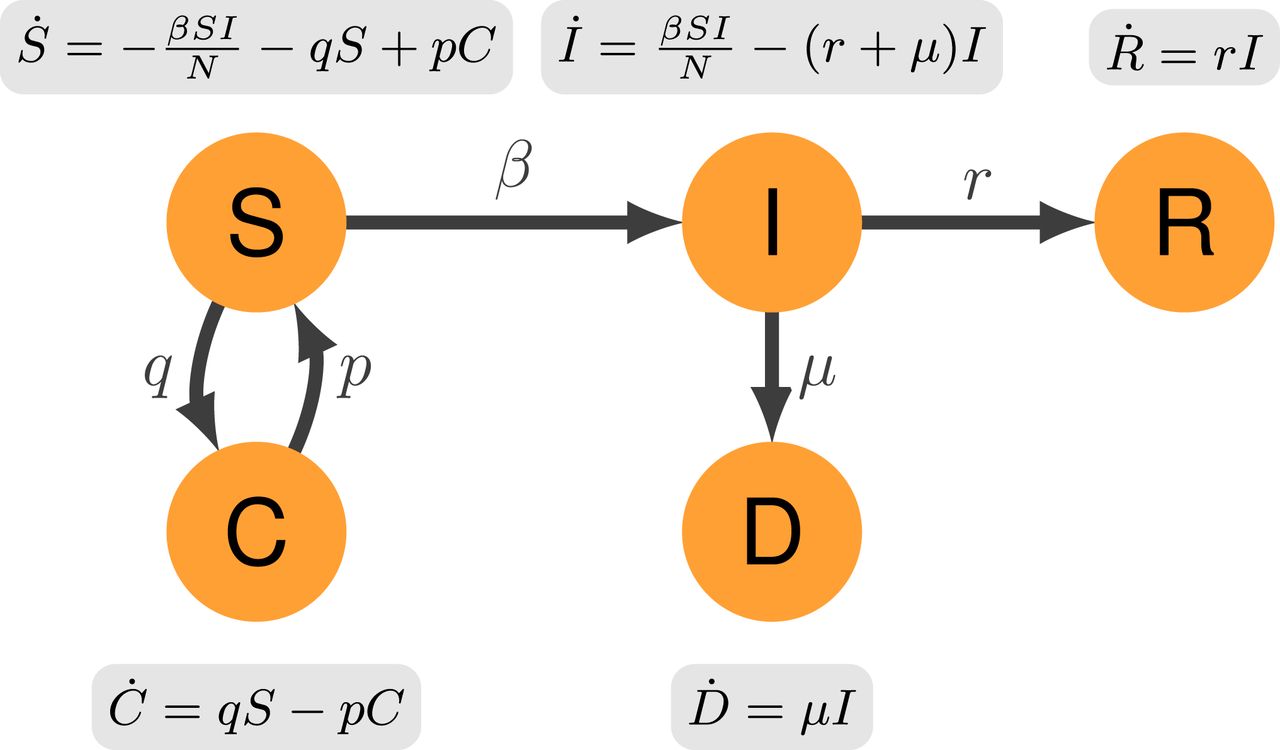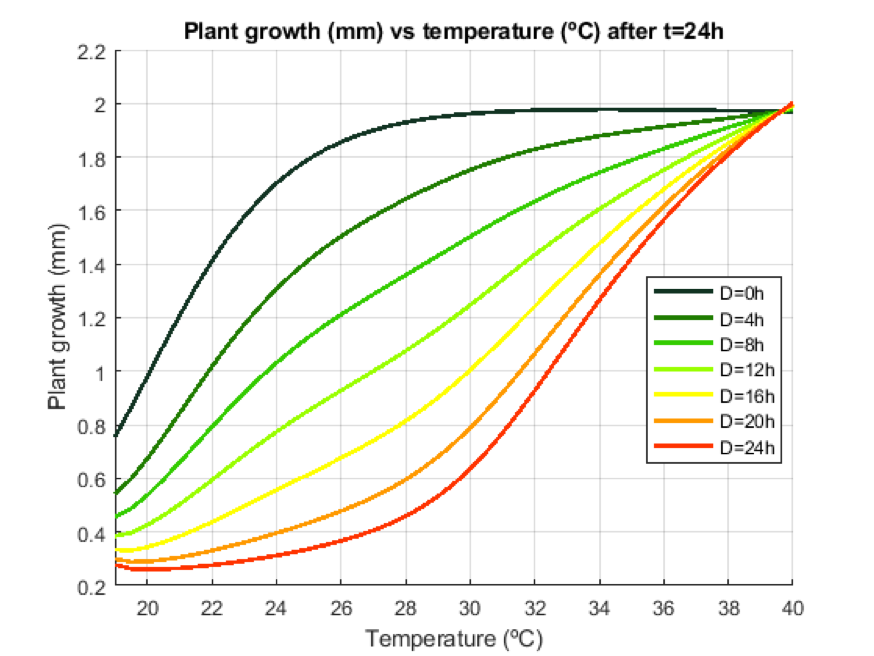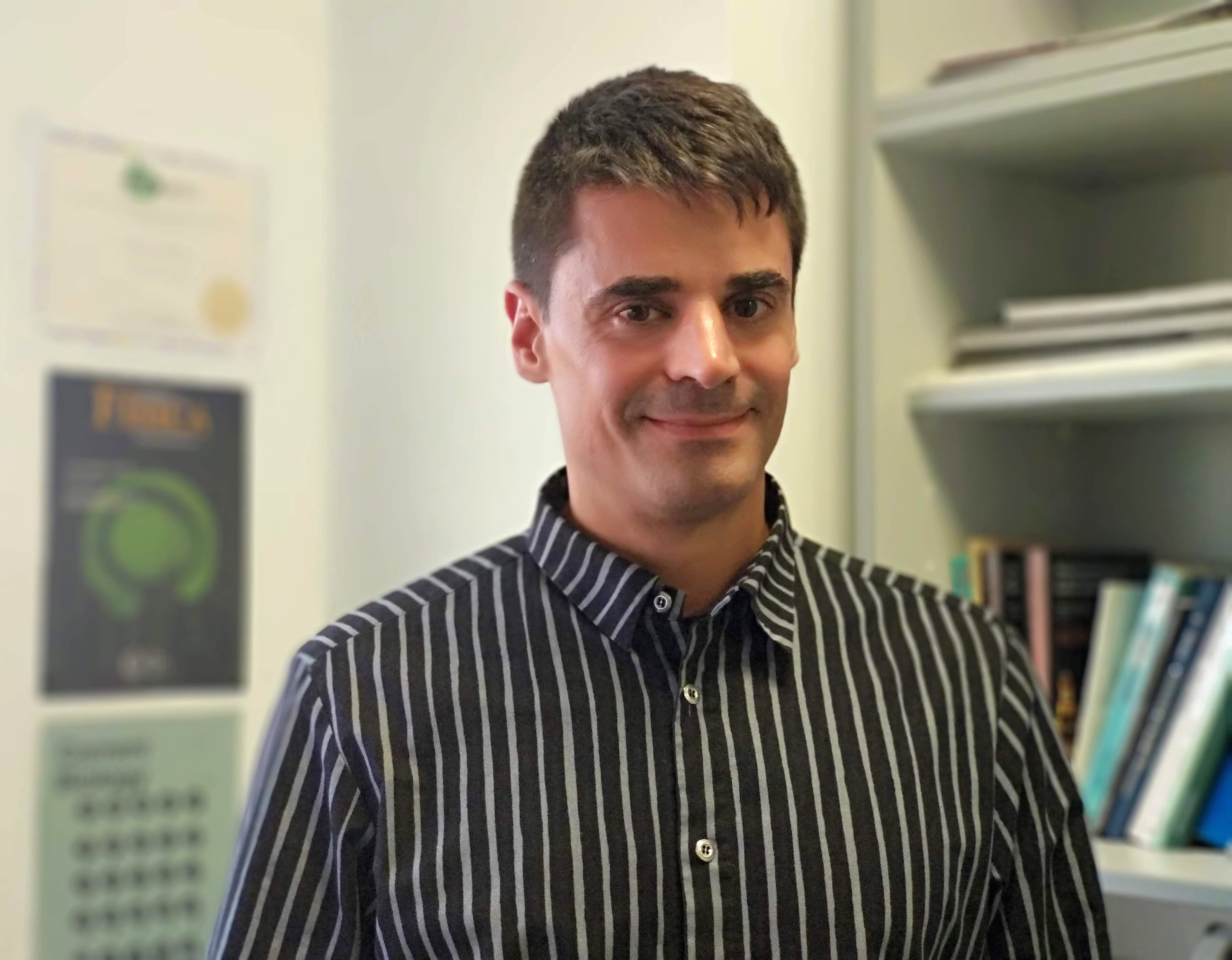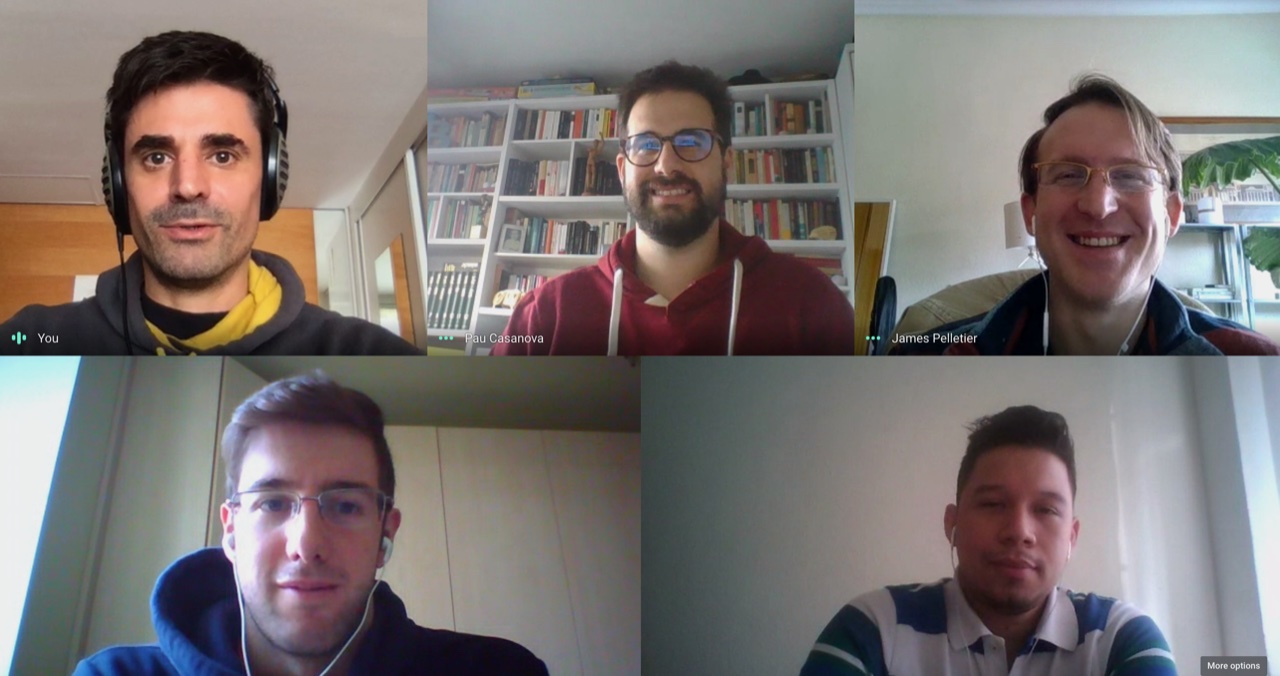Saúl Ares
Group Leader
We are interested in spatiotemporal phenomena in living systems: oscillations, pattern formation and dynamics of gene expression.
Publications
Meijer WJJ, Boer DR, Ares S, Alfonso C, Rojo F, Luque-Ortega JR, Wu LJ. Multiple Layered Control of the Conjugation Process of the Bacillus subtilis Plasmid pLS20. Front Mol Biosci. 2021 Mar 18;8:648468.
Castro M, Ares S, Cuesta JA, Manrubia S. The turning point and end of an expanding epidemic cannot be precisely forecast. Proc Natl Acad Sci USA 2020; 117: 26190-26196
Val-Calvo J, Luque-Ortega JR, Crespo I, Miguel-Arribas AM, Abia D, Sánchez-Hevia DL, Serrano E, Gago-Córdoba C, Ares S, Alfonso C, Rojo F, Wu LJ, Boer DR and Meijer WJJ Novel regulatory mechanism of establishment genes of conjugative plasmids Nucleic Acids Res 2018; 46: 11910-11926
Muñoz-García J, Saúl Ares Formation and maintenance of nitrogen fixing cell patterns in filamentous cyanobacteria Proceedings of the National Academy of Sciences of the United States of America 2016; 113, 6218-6223
Rodríguez-Tornos FM, Briz CG, Weiss LA, Sebastián-Serrano A, Ares S, Navarrete M, Frangeul L, Maria Galazo M, Jabaudon D, Esteban JA and Nieto MCux1 Enables Interhemispheric Connections of Layer II/III Neurons by Regulating Kv1-Dependent Firing Neuron 2016; 89, 494-506
We are interested in spatiotemporal phenomena in living systems: oscillations, pattern formation and dynamics of gene expression, using theoretical and computational methods derived from physics and mathematics. In the past year, following the epidemic emergency, our research has focused on epidemic dynamics, where we have presented a new model considering the effect of confinements, calculated the threshold over which lockdown measures inhibit infection spread, and shown that the predictive power of mathematical models of epidemic dynamics is limited by the exponential growth of uncertainties.

Diagram of the epidemic model along with the equations ruling the dynamics. Susceptible individuals (S) can enter and exit confinement (C) or become infected (I). Infected individuals can recover (R) or die (D). N is the total population. Rates for each process are displayed in the figure; q depends on specific measures restricting mobility and contacts, while p stands for individuals that leave the confinement measures (e.g., people working at essential jobs like food supply, health care, or policing), as well as for defection. We fit I to data on officially diagnosed cases, which are automatically quarantined: The underlying assumption is that the real, mostly undetected, number of infections is proportional to the diagnosed cases. From Castro et al. 2020
We have also been working on pattern formation in Anabaena, a filamentous cyanobacterium that differentiates specialized cells in the absence of fixed nitrogen. Plant research has also been an important topic: we have been working on the effect of light and temperature in plant growth, focusing on the embryonic stem, the hypocotyl, of Anabaena thaliana. We have also developed on the regulation of the effect of nitrogen on the tillering of green revolution varieties of rice.

Model predictions for hypocotyl growth (mm) as a function of temperature after 24 hours for different number of light hours in the day, D. From the Master thesis of Gabriel Rodríguez Maroto
Another relevant topic has been bacterial conjugation in Gram-positive bacteria. Conjugation is one of the mechanisms by which bacteria can exchange genetic material, in particular genes necessary to build antibiotic resistance.
Besides pure research, during 2020 we have made a great effort in science popularisation regarding epidemic dynamics, with a great number of TV, radio and newspaper contributions in Spanish and international media, including The Wall Street Journal, the French public radio, Süddeutsche Zeitung or almost all the major Spanish TV channels. On the Twitter account @omeuxeito we discuss and analyse almost on a daily basis epidemic data from the region of Madrid.







